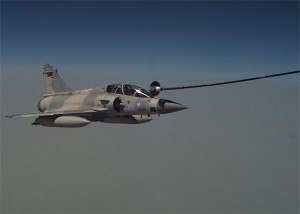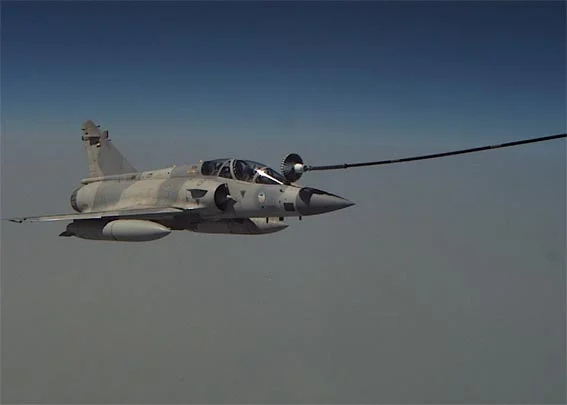6/29/12: In mid- June 2012, Second Line of Defense talked with Victor Gervais, a young French researcher who recently published his dissertation on the UAE military. Gervais had just returned from a two-week visit to the UAE when we discussed with him his perspectives on how the UAE leadership was viewing the current situation.
SLD: A key reality for the UAE is geography. They live in a congested geographical space with no strategic depth.
How does this shape their perspective?
Gervais: It is really a key dimension.
They have very little response time for any attack which would be mounted against them. They have as you say no strategic depth.
This means that they have to prepare effectively in order to have an integrated deterrent.
SLD: Obviously, Iran is one of the key challenges to the UAE, notably with the Iranians likely to gain access to nuclear weapons as well as to continue to develop their missile capabilities.
How does the UAE view their Iranian relationship and challenge?
Gervais: The two countries have a long history. And a wide ranging relationship as well. It would be wrong to consider it simply from the standpoint of a threat vector.
And one must remember as well that the UAE is a federation. The different parts of the federation have varying relationships with Iran as well. Some emirate, such as Dubai, have strong economic and trade relationships with Iran. More than 400,000 Iranian live in this emirate. So there is a complexity introduced by the federated nature of the UAE.
SLD: What kinds of threats does the UAE see from Iran?
Gervais: The leaders see a variety of threat scenarios which requires the UAE to prepare for different types of challenges.
One scenario is clearly that associated with the Straits of Hormuz.
The Iranians could try to shut the Straits and provide a stranglehold on oil transit. The UAE leaders do not see this as the primary threat by itself. In part, because they believe that this would prove suicidal for the Iranian regime as the US and its allies would react strongly against such an action
But they do worry about this threat when seen in combination with pressuring UAE maritime installations and critical infrastructures.
They are very concerned with the security threat of underwater operations, divers, submarines, mines, etc.
More generally, the threat to the GCC littorals from the Iranian ships, missiles and other assets could provide a real challenge to the GCC states, given their lack of strategic depth.
And related to such a littoral operations approach could be the threat of Iranian special forces operations against targets of interest in the UAE.
In other words, pressure tactics spearheaded by selective military actions is a primary concern for the UAE leadership.
SLD: What capabilities are the UAE leaders seeking to counter some of these threats?
Gervais: One clear need is to strengthen underwater defenses.
This might be built around a UAE submarine force, but there is a clear need to develop counter-special forces underwater threats as well.
SLD: One way to interpret this approach is the need to better manage the littoral and maritime regions facing the UAE and GCC states.
Gervais: This is a good way to look at how they view the primary challenge for which they need to organize.
They are especially concerned with the possibility of the Iranians using swarming tactics against the UAE and GCC states. That is, by using a wide variety of tools, underwater, littoral strikes, etc., the Iranians could put pressure on multiple points at the SAME TIME.
From this point of view, a core priority is to follow the Omani example and shape a very effective monitoring system over the maritime regions.

SLD: They obviously as well have upgraded their air capabilities and missile defense capabilities. But the challenge of integration remains.
Gervais: It does. And this is a major priority for the UAE leadership, notably with how little reaction time they will have in case of a major Iranian strike.
SLD: The French have a naval base in the UAE.
How has the UAE interpreted this base and its meaning?
Gervais: It is seen as another Western commitment to their defense but it is limited because it is not an operational base as such. It is a training base and as such helps shape the interoperability between the French and UAE forces.
And it strengthens the long time strategic partnership between the two countries.
SLD: Finally, how does the UAE view the Egyptian and Arab Spring developments?
Gervais: The UAE leadership supported the Mubarak government until the very end.
They are very concerned with the threat of Islamic fundamentalism. They view the Arab Spring with ambivalence from this point of view.
In fact, I believe that they are as much concerned with the threat of Islamic fundamentalism as the threat from Iran itself.
(For a look at his work on State Building Strategies in United Arab Emirates, see
Also see, Soft Power in the Gulf,


